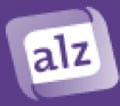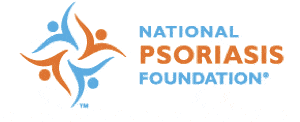For Clinicians
 We believe that patients are at the heart of health care. Treating patients with respect, hearing and valuing their concerns, and involving them in decisions about their care is the foundation of the National Quality Strategy (NQS) and the “triple aim” of improving care, health, and cost of care.
We believe that patients are at the heart of health care. Treating patients with respect, hearing and valuing their concerns, and involving them in decisions about their care is the foundation of the National Quality Strategy (NQS) and the “triple aim” of improving care, health, and cost of care.
While patient-centered care is about the actions of the physician and other health care providers, patient engagement is about the action of patients regarding their own care.
The patient must be at the center of clinical care. CME Outfitters actively inserts the patient voice into our education by accessing a large social community of patients and health activists to cater to the specific needs of the patient. That is why we have created this page of patient resources, so that you, the clinician, can share these resources, or this webpage with your patients to help them be active in their care.
In alignment with the Patient Centered Outcomes Research Institute (PCORI), this resource page is here to provide patients information they can use to make decisions that reflect their desired health outcomes.
Clinicial Resources -The Gerontological Society of America KAER Toolkit
A 4-Step Process to Detec ng Cogni ve Impairment and Earlier Diagnosis of Demen a, the KAER toolkit provides an extensive collec on of evidence- based, prac cal and easy-to-use guidance primary care providers can use to work with older adult pa ents and their families who are concerned about brain health and cogni ve decline. This online toolkit is based on the KAER model, as developed by the GSA Workgroup on Cogni ve Impairment Detec on and Earlier Diagnosis.
Opioid Risk Tool
The Opioid Risk Tool is a brief screening tool to help predict which individuals may develop aberrant behaviors when prescribed opioids for chronic pain. The tool is self-administered and measures risk factors associated with substance abuse including, personal and family history of substance abuse, age, history of preadolescent sexual abuse, and certain psychological diseases. Patients receive scores of 0-3 (low risk), 4-7 (moderate risk), or ≥8 (high risk), indicating the probability of their exhibiting opioid-related aberrant behaviors.
For Patients
CMEO wants to help you, the patient, easily locate resources such as info graphics, patient stories, clinical guides, frequently asked questions, etc. that pertain specifically to your health concerns. We understand the value of having access to free, credible health resources with the click of the button, and we hope you can find what you’re looking for here.
On this page you will find a variety of electronic resources, from a variety of different sources that exist to help improve your life! If there are specific resources you are looking for that are not listed here, please feel free to contact us for help by emailing questions@cmeoutfitters.com.
*CMEO is not responsible for the content of linked resources.
Patient Resources – Multiple Sclerosis
 CME Outfitters has designed these videos, resources, and tools to address frequently asked questions and to help patients increase their knowledge about their MS. It is our goal that the education will contribute to improved and informed discussions between patients and health care providers in the management of MS.
CME Outfitters has designed these videos, resources, and tools to address frequently asked questions and to help patients increase their knowledge about their MS. It is our goal that the education will contribute to improved and informed discussions between patients and health care providers in the management of MS.
Patient Resources – Gout and Chronic Kidney Disease
Patient Resources – Remain Calm, Stay Safe, Be Prepared: Developing and Implementing a Seizure Action Plan
A report from the Institute of Medicine – Epilepsy Across the Spectrum: Promoting Health and Understanding:
www.iom.edu/Reports/2012/Epilepsy-Across-the-Spectrum.aspx
Komaragiri A, Detyniecki K, Hirsch LJ. Seizure clusters: A common, understudied and
undertreated phenomenon in refractory epilepsy. Epilepsy Behav. 2016;59:83-86. PMID: 27116535.
ORGANIZATIONS
• American Epilepsy Society: www.aesnet.org
• Centers for Disease Control and Prevention: Epilepsy: www.cdc.gov/epilepsy
• Citizens United for Research in Epilepsy: www.cureepilepsy.org/home.asp
• Epilepsy Foundation: www.epilepsyfoundation.org
Sample Seizure Action Plans
• My Seizure Plan: www.epilepsy.com/sites/core/files/atoms/files/myseizureplan.pdf
• Seizure Action Plan for School-aged Children from the Epilepsy Foundation:
epilepsy.prod.acquia-sites.com/sites/core/files/atoms/files/seizure-action-plan-pdf_0.pdf
Seizure Diary
• My Epilepsy Diary:
A new Seizure Diary will launch in late 2015, with the ability to track not only routine medications, but also rescue medications
• International League Against Epilepsy: www.ilae-epilepsy.org
• National Institute of Neurological Disorders and Stroke: www.ninds.nih.gov/disorders/epilepsy/epilepsy.htm
TV-086-110415-48
Hepatitis B Infection
Living with Hepatitis B, An Interactive Learning Guide for Acute and Chronic Infection
http://www.hepb.org/learnguide/
Mental Health

Schizophrenia: What You Need to Know
http://www.mentalhealthamerica.net/conditions/schizophrenia

Mental Health Topics and Resources for Families – University of California Dept of Psychiatry
http://psych.ucsf.edu/topics
Inflammatory Bowel Disease

Crohn’s & Colitis Foundation of America
http://www.ccfa.org/
Neurology

Alzheimer’s Patient Message Board
https://www.alzconnected.org/

American Academy of Neurology – Website for patients and caregivers
https://patients.aan.com/
Rheumatoid Arthritis
Arthritis Foundation
What is psoriatic arthritis?
http://www.arthritistoday.org/about-arthritis/types-of-arthritis/psoriatic-arthritis/what-you-need-to-know/what-is-psoriatic-arthritis.php

Rheumatoid Arthritis Warrior
http://rawarrior.com/
Psoriasis

National Psoriasis Foundation
Flu Season Tips for Psoriasis and Psoriatic Arthritis
https://www.psoriasis.org/advance/flu-season-tips-for-psoriasis-and-psoriatic-arthritis
Psoriasis or gout? Learn how to tell the difference
https://www.psoriasis.org/advance/psoriasis-and-psoriatic-arthritis-increase-your-odds-for-gout
Insomnia

Insomnia: What it is, how it affects you, and how to help you
http://sleepfoundation.org/insomnia/home
General Resources
General information about how to be an involved patient, information about antibiotics, patient awareness links, toolkits, and patient stories

Patient Involvement
http://www.ahrq.gov/patients-consumers/patient-involvement/index.html
NY Times Patient Voices
http://www.nytimes.com/interactive/2009/09/10/
health/Patient_Voices.html?_r=0

Centers for Disease Control and Prevention
How To Use Antibiotics Wisely
http://www.cdc.gov/Features/getsmart/
Healthy Minds. Healthy Lives. Blog
http://apahealthyminds.blogspot.com/

Shots – Health News from NPR
http://www.npr.org/sections/health-shots/

Medline Plus – Trusted Healthcare Information for Patients
http://www.nlm.nih.gov/medlineplus/

Daily Med – US National Library of Medicine
http://dailymed.nlm.nih.gov/dailymed/index.cfm
Story Corps
http://storycorps.org/listen/
The Savvy Patient Toolkit
https://sites.google.com/site/thesavvypatientstoolkit/home
ClinicalTrials.gov
https://clinicaltrials.gov/ct2/help/for-patient

Cleveland Clinic
Patient Guide to Personal Medical Decisions
http://my.clevelandclinic.org/patients-visitors/legal-ethical-decisions/personal-medical-decisions
Preparing For an Appointment: Questions To Ask Your Doctor http://my.clevelandclinic.org/patients-visitors/prepare-appointment/questions-to-ask-your-doctor
